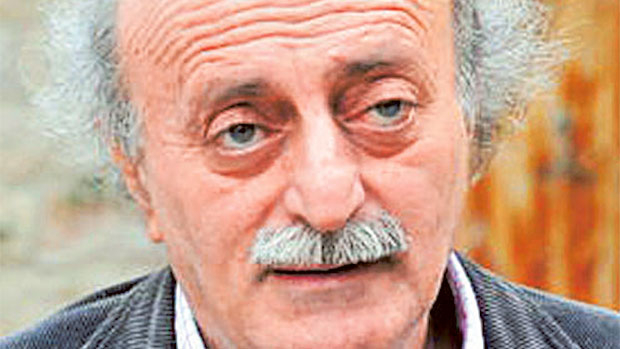
Beirut: Few Lebanese noticed that a 16th scheduled parliamentary session on Wednesday November 19 failed to secure a quorum to elect a successor to President Michel Sulaiman. Most went on about their lives though some turned their television sets to an MTV station interview with Michel Aoun (Free Patriotic Movement-FPM) to hear the Hezbollah-nominee throw down the gauntlet to his rivals, challenging both the March 14 candidate, Samir Geagea (Lebanese Forces-LF), and the Progressive Socialist Party (PSP) aspirant, Henri Helou, to a two-man duel.
Aoun declared that he was willing to attend a parliamentary session on certain conditions, which confirmed that the FPM, along with other March 8 deputies, were responsible for the constitutional fiasco that prevented the election of Sulaiman’s successor. The General’s main condition was a preliminary assurance that all political forces would limit the voting process to him and his main political rival, which was both bizarre as well as undemocratic, though the latter was a matter of convenience for local politicians. “I’m willing to go to parliament if I receive pledges that the electoral battle will be limited to me and Geagea,” declared Aoun, adding: “I don’t care if I become a president or not and I’m only trying to preserve this Christian post.”
Walid Junblatt, the chief recipient of Aoun’s latest diatribe, was quick to react. “I respect General Aoun’s opinion, but we have the right to a democratic competition,” Junblatt wrote on his Twitter account, which was as clear a rejection of the Aoun offer as any.
An agitated Aoun added insult to injury when he emphasized that Junblatt’s nomination of the PSP’s Henri Helou was little more than a maneuver to eliminate both Geagea and him to elect “a third candidate,” decrying what he advanced was a ploy by foreign powers to appoint a head-of-state. The open secret, of course, was Aoun’s refusal to see the president chosen by a kingmaker, which Junblatt’s 11 swing votes in parliament guaranteed. A 2-man duel in a perfectly divided March 8-March 14 electoral-college votes, effectively meant that Junblatt and his PSP would pick the eventual winner, by siding with one candidate over the other.
Asked about Geagea’s recent suggestion that the March 8 and March 14 forces reach an agreement on a third candidate in order to break the stalemate, Aoun replied: “I do not want to reach this proposal and this suggestion is prohibited.” “I want someone who can represent Christians and the Lebanese people and others do not want this,” he added.
By insisting that the elections be held between him and Geagea, Aoun disclosed his real fear, namely that a behind the scenes deal may be in the works to elect, for instance, Army Commander General Jean Qahwaji or Phalange Party leader Amin Gemayel.
Earlier on Wednesday, Geagea lambasted Hezbollah and the FPM, demanding that they be held accountable for their actions since these leading March 8 coalition parties failed to attend the parliamentary session. “The FPM bloc is hindering the polls by forcing us to choose between a strong president or vacuum,” and added, “We disagree with the bloc on its view of a strong president. Their candidate may be strong in his recklessness as demonstrated during some civil war incidents,” he said in reference to Aoun’s checkered performance during the 1975-1990 civil war.
At one point in the interview, Aoun stressed that he was not calling for a constituent assembly “but rather for implementing the text and essence of the Ta’if Accord,” which he had previously relegated to the dust-bin, although it was Geagea who provided the day’s sound-bite when he asked: “why didn’t their deputies head to parliament and elect Aoun, now that Hezbollah formally backed his candidacy?”
Speaker Nabih Berri scheduled the new electoral session for December 10, 2014, even if the office, which President Suleiman vacated on May 25, 2014, was likely to remain unoccupied.











